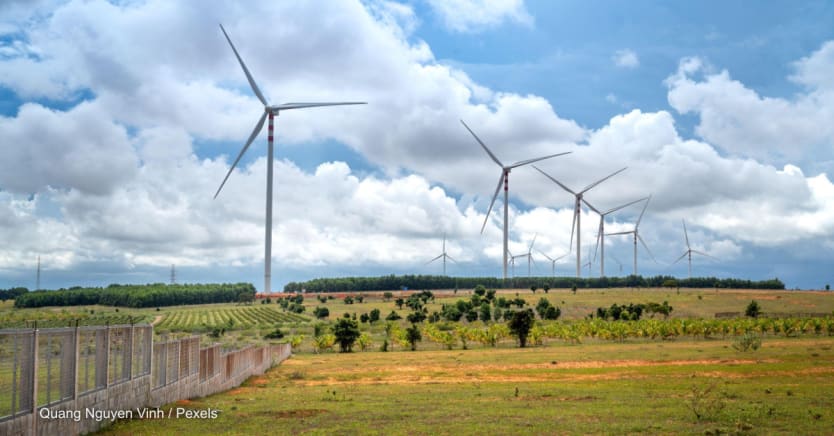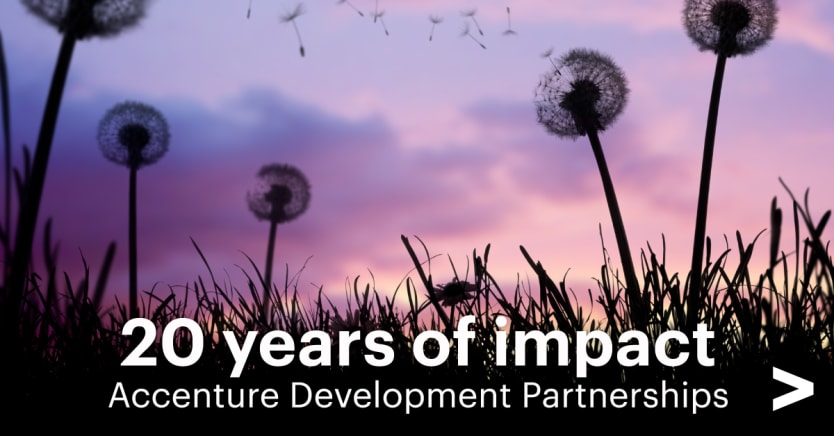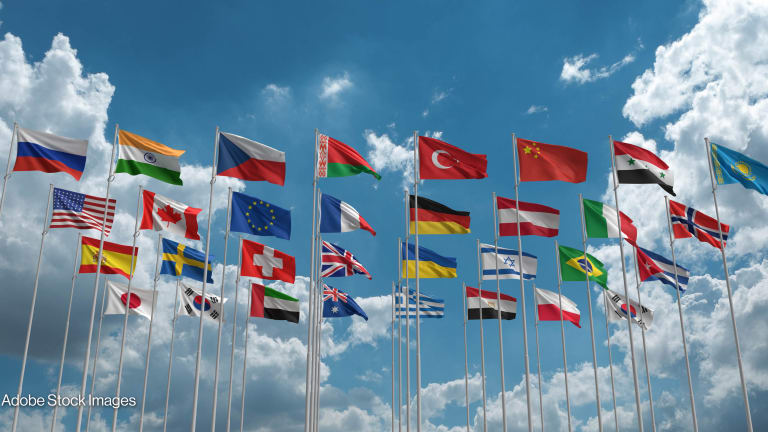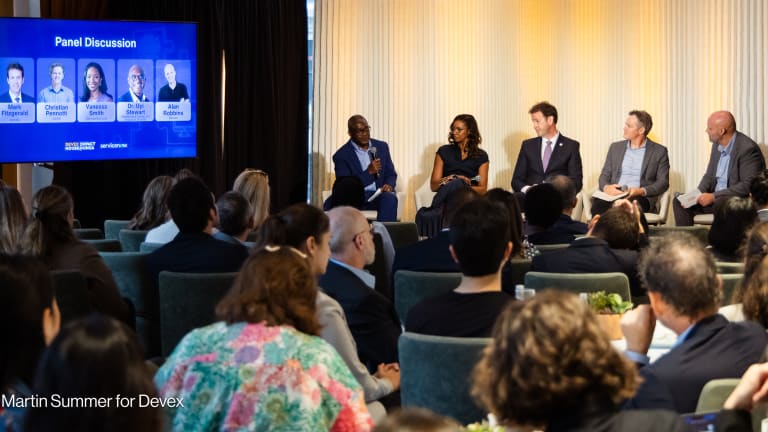
Accenture Development Partnerships, or ADP, is not a typical consultancy. Since our founding as part of Accenture in 2003, we have grown into a global practice delivering more than 1,900 innovative projects that have made a positive impact in nearly 100 countries. We help hundreds of clients — including leading NGOs, private foundations, public donor agencies, and the private sector — address society’s most critical challenges across key areas including agriculture; climate and environment; energy; gender, inclusion and diversity; health and nutrition; humanitarian aid and refugees; inclusive financial services and products; and access to quality education and sustainable livelihoods.
Here are three lessons that continue to inspire.
1. It takes an ecosystem to create real impact
2023 sees a more important milestone than just ADP’s anniversary — it marks the halfway point of the United Nations Sustainable Development Goals. The SDGs represent both a blueprint to achieve a more resilient, more sustainable future and a road map for public- and private-sector innovation. As businesses increasingly use the SDGs as a consistent language for their environmental, social, and governance efforts, they also provide a framework for all stakeholder groups to work together, and articulate and measure shared value.
However, according to the latest U.N. Global Compact-Accenture CEO study, we must accelerate our work in sustainability to build a more resilient future if we are to rescue the SDGs. The complexity and sheer scale mean that no single organization, or even sector, can make significant progress working alone — it takes an ecosystem of players across multiple sectors, industries, technologies, and innovations working together. ADP has built our ecosystem over the past 20 years, consisting of NGOs, donors, and foundations that are our clients as well as Accenture’s specialized technology partners and commercial clients, social entrepreneurs, governments, and in some cases even our competitors. We act as a nexus for these groups, converging shared interests and resources to help our stakeholders advance the SDGs.
For example, we helped The Human Safety Net, the philanthropic arm of Generali Group, a global insurance and asset management company based in Italy, better serve young families and migrants by developing new ways to think about inclusive insurance strategies that aim to solve for the “protection gap” — the difference between economic and insured losses — which hinders people from building economic resilience.
2. Technology and innovation are increasingly more important
Accenture’s purpose is to deliver on the promise of technology and human ingenuity, so, unsurprisingly, we see the growing importance of technology and innovation in our work. Despite NGOs’ increasing digitalization, they tend to be less advanced than the private sector. Digital tools facilitate more effective, efficient, robust, and scalable data collection, analysis, and reporting — leading to more real-time ability to pivot and improve programming. Organizations that successfully build digital infrastructure and capacity can increase on-the-ground engagement while significantly reducing overhead costs and accelerating their impact.
A good example is the work that we’ve done in partnership with Novartis, the World Health Organization, and the Broadband Commission for Sustainable Development’s working group on virtual health and care, to explore how virtual technologies can help make health care accessible through inclusive policymaking and data-driven digitalization.
3. The model matters
Since ADP was founded, we have put impact and purpose first and tried to make our services as accessible and cost-effective as possible. This commitment enables us to serve a large portfolio of clients around the world while still offering the entire spectrum of Accenture services.
With a global core team, we can meet with clients to understand their needs and then draw on a rotating set of the 732,000 people of Accenture to implement ADP projects — and we’re never short of willing participants. They come from all different levels, sectors, and countries, and bring the expertise they have built working with Accenture’s commercial clients. ADP projects offer them the unique opportunity to develop their knowledge of ESG and international development. As sustainability continues to be embedded across businesses, circular experiences like these and participation from corporate and civil society are necessary.
As expressed by Save the Children US CEO and President Janti Soeripto: “Save the Children’s collaborations with ADP over the last 20 years have helped maximize our impact for children. Their project and change management teams are helping transform our operations, while their creative teams are working with us to develop campaigns and products that have contributed to our $200 million global humanitarian fund. We’ve learned that we can do so much together sharing the same ambition for children.”
The next 20 years
We are optimists by nature, and the work we do reinforces that — we constantly see the good that comes when people work toward common goals, not just the SDGs. As we look forward to the next 20 years, we believe that increasingly everyone will think and act in ways that consider all stakeholders — so that growth, impact, and sustainability sit at the heart of everything that public- and private-sector organizations do. Achieving this will require different groups coming together to tackle complex themes where ESG issues overlap, such as climate’s impact on gender or health. Most of all, we are confident that ADP will continue to grow and evolve so we can forge connections that help our clients improve lives around the world.

For more on ADP, please go to our website.









